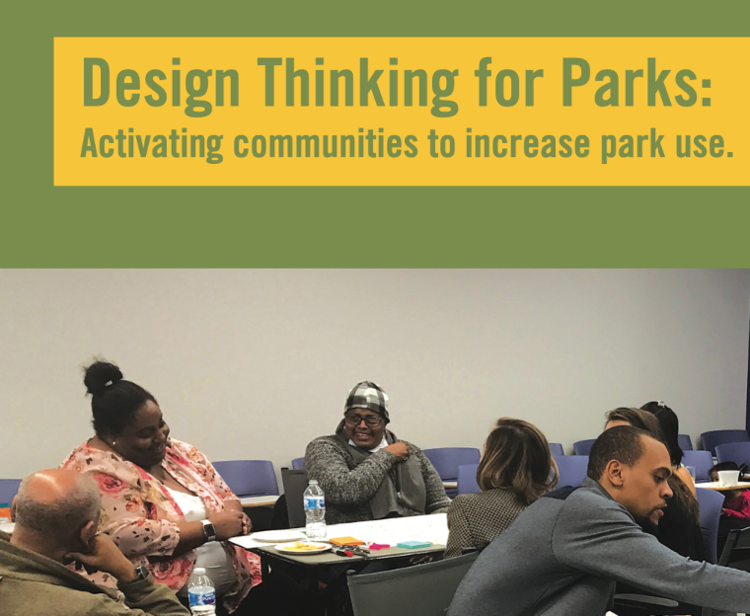The Design Thinking for Parks initiative applies co-creation and co-design methods to assess New York City communities’ use of their local parks. Community members were invited to participate in a series of co-creation workshops to discuss the value of local parks and strategies to increase park usage in their respective communities. Participants were led through a series of hands-on activities to explore what participants value about parks and what specific activities might be associated with these values. Drawing on these values, the research team developed several potential strategies to increase park usage. These ideas were taken back to the community for further input in a co-design workshop. The ultimate goal is to test novel implementation strategies to enhance the adoption and impact of environmental interventions such as park renovations.
Building on our earlier work on design thinking as well as the PARCS Study, our team was recently awarded a new grant from the National Institutes of Health to implement and test a design thinking-driven community engagement process in eight NYC neighborhoods to leverage the recently renovated park spaces to make neighborhoods more vibrant. In turn, we hope to see improved quality of life and mental wellbeing at the community level. This study is groundbreaking in two ways. First, it is the first time that design thinking will be empirically tested in the context of a community-engaged public health intervention. Second, we will be examining the joint effect of physical and social changes in the built environment on public health outcomes.
Principal Investigators: Terry Huang
Select Publications:


